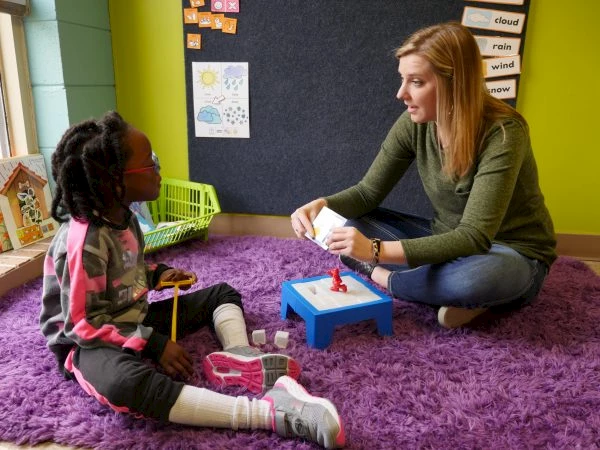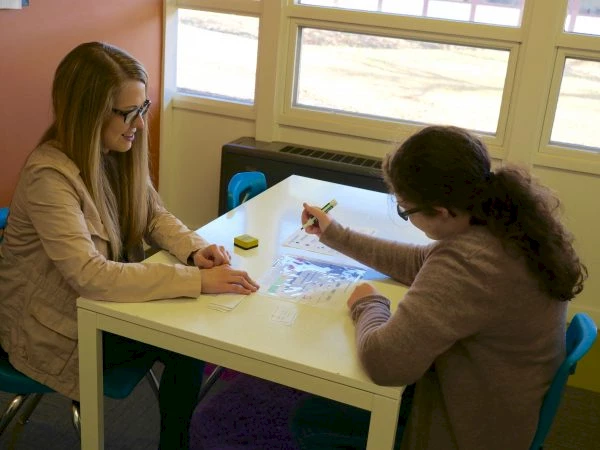Speech Therapy, More Than Just Words
Often times, people assume speech therapy is simply for vocal language and articulation. However, speech therapy is so much more. We caught up with ACCESS Speech-Language Pathologists Molly Ramsey and Amanda Dreidric to learn more about what all speech therapy really encompasses.

Q: Most people associate speech with vocal language and articulation. What all does speech therapy actually encompass?
A: Speech therapy is SO much more than talking. The role of a speech therapist is diverse; we work on so many aspects of communication, as well as feeding and swallowing. Communication includes articulation, fluency, language, social skills, cognition, and hearing.
Q: How do you incorporate those different types of communication skills into therapy, and why are they important?
A: For the preschool population (mainly ages 2-4 years), we incorporate various communication strategies into therapy through play-based activities, structured tasks, and integration in the classroom. When a child is not a successful communicator, they may become frustrated, which can then affect behavior, attention, confidence, social skills, and academics. For preteens/teenagers, they are learning independence and functional life skills. We want to teach them to use appropriate speech, language, and social skills so that they can learn to be successful, independent adults.

Q: What is pragmatic language, and why is that an important part of communication?
A: Pragmatic (social) language is such a huge part of a child’s life and something they use every single day. It is important to teach these skills in order for children to be able to build social relationships with peers, have conversations with friends and family, and learn to work in groups.
Q: What advice would you have for parents who feel their children are struggling in areas of communication?
A: There is no age too young or too old for speech therapy. Children develop at different rates, and your pediatrician will be able to help you determine if your child is within an appropriate window of time for meeting specific milestones. If the doctor is concerned, he or she can refer you to a speech-language pathologist to pursue a comprehensive speech-language evaluation for your child.